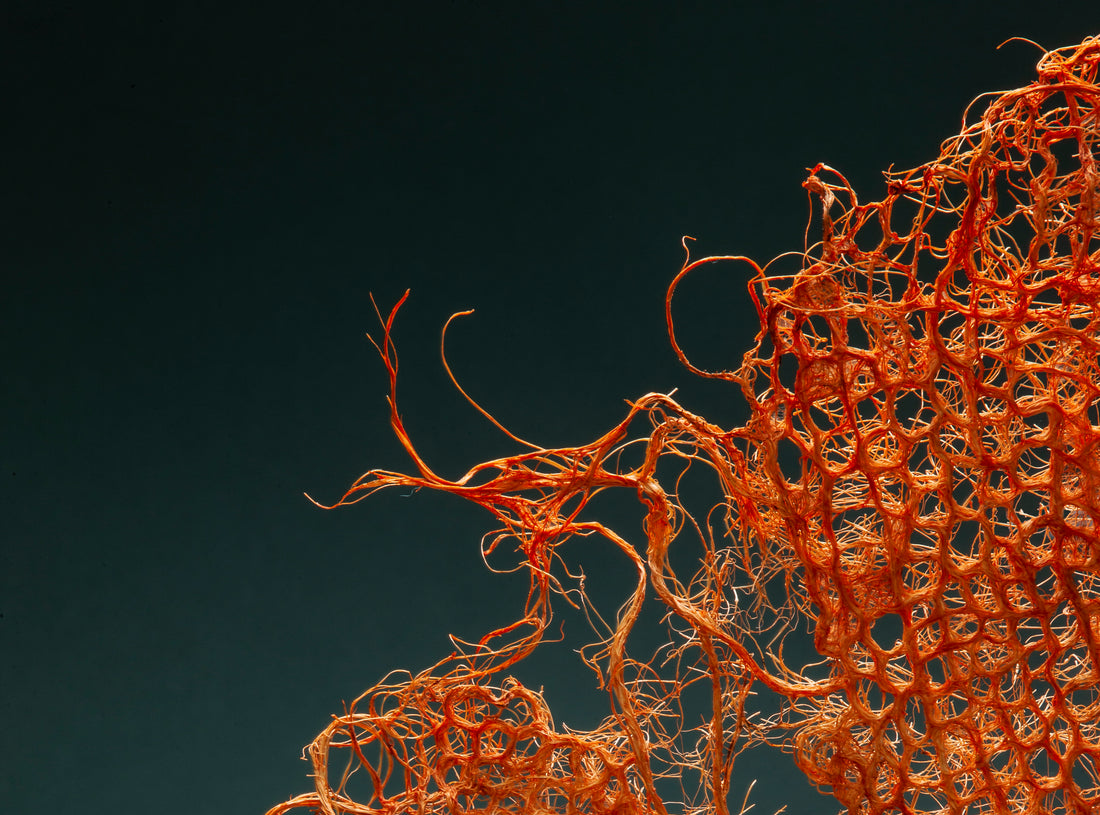
LONDON CRAFT WEEK: ROOTED - ZENA HOLLOWAY & DE LE CUONA
Alongside celebrations of heritage textiles and ancient techniques, London Craft Week offers a platform to showcase the most inspiring artisans leading sustainable material innovations today.
Challenging the boundaries of what we may know to be a ‘textile’ Zena Holloway is a British artist, photographer and bio designer who grows wheatgrass that is then carefully moulded, shaped and formed to create textile sculptures and crafted objects. For London Craft Week, Holloway comes together in collaboration with De le Cuona, a bespoke British fabric house established in 1992 by Bernie De Le Cuona, specialising in fine linen fabrics for interiors.
A collaboration where by textile tradition and textile innovation meet, as one. For both Holloway and De le Cuona they share a deep respect for our natural world. Mirroring the organic rhythms in nature, through slow, sustained hand craft.
Reflecting on this special partnership for London Craft Week, Holloway expresses to me;
"The notion that we can collaborate with nature to sustainably grow our built environment is exciting to me. For London Craft Week I’ve drawn inspiration from de le Cuona’s linens to grow new patterns. Both fabric and root are purposefully conceived and constructed with natural ingredients – one is woven by man and the other is woven by nature."
Having began her career as a marine photographer this presented Holloway with the devastating reality of the plastic crisis and the impacts we as humans are inflicting upon our oceans. With a deep desire to be a part of the movement imbuing change, this led Holloway to material science. And as her research expanded, so did her mind, to the possibilities of a future where our fabrics are grown from seed.
Holloway not only pioneered a new sustainable material made from grass root, but also a new approach to making. One of upmost transparency and circularity. Carefully nurturing and cultivating each stage of the process. Using carved beeswax as a template, wheatgrass is grown and over 12 days the shoots can reach to 20 cm. Whilst an intricate woven pattern naturally occurs within the root system. The root material is completely compostable. Thus when the object reaches the end of its life span it can be returned to the Earth.
The versatility of this material allows Holloway to produce a number of crafted objects. Ranging from large scale hanging sculptures, to vessels or fashion pieces. With no two objects the same, this partnership with nature, celebrates the differences and individuality of plant life and of creating objects by hand. Holloway says; “I carve beeswax templates to influence the way the root is shaped but I leave everything else to nature. Rather like a tree growing, the root takes a different path each time.”
For London Craft Week, Holloway will present a series of homeware accessories, her first works using organic colour to dye the wheatgrass. Akin to the soft, delicate and natural palette used through De le Cuanos linen collections, Holloway experimented with the natural pigments that could be extracted from plant material. Ranging from lac, gallnut, cutch and woad. Exploring their prospects for new identities of the root. Holloway reveals “This is my first foray into the world of natural dyes and now that I’m slightly less of a novice I plan to create more coloured root in the future with home grown dyes”.
It is evident that this is only the very start of the boundless possibilities for the future of the root within textiles.
“Ultimately the root is material to inspire change and breathe a little bit of wonder into our, all-to-often, concrete world”
Rooted will be on display at de le cuonas showroom in Belgravia from the 8-13 May. The exhibit is free to visit and tickets can be booked via the London Craft Week website HERE.
Guest edited by Katerina Knight
